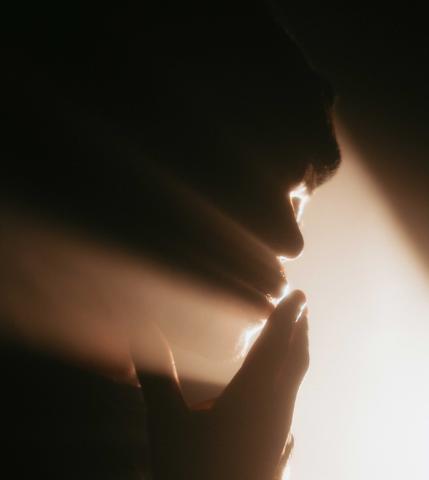Theologian Rob Fennell writes that spirituality is the way we seek and receive God’s love and grace in everyday life.

In this series of blog posts reflecting on The United Church of Canada's Call and Vision: Deep Spirituality, Bold Discipleship, Daring Justice — we will explore each line and the insights they offer for our personal faith experience and our witness as Christ’s church. (These reflections could be used as inspiration for your own. Please let us know if you have sermons, reflections, or ideas to share to animate the United Church’s Call and Vision statements.)
Spirituality is a term that seems gentler than “theology” or even “faith.” It’s a good way for us to focus our attention and our actions around what is most important to us. But there are a thousand and one definitions of what “spirituality” is.
I’ve worked up a short definition, or a kind of focus statement, to help me in my spiritual life and teaching. I think of spirituality as the ways we seek and receive God’s love and grace in everyday life.
Maybe we don’t need a definition of spirituality. We can just do it, or be it, or live it. That makes sense to me too.
Spirituality isn’t a specialized activity for “extra holy” people; nor about climbing the sacred mountain; nor about having extraordinary experiences. All of this might happen for you, and that’s all good, but spirituality is not usually about this, or at least not only about this. Spirituality is more everyday, more normal, I think.
We experience spirituality in the words and actions of gratitude we exchange with others. It’s about stillness and reflection. It might take shape in the form of prayer or journaling, music or dance. Spirituality is lived out in reading the Bible, worshipping with a community, and enjoying the natural world. It’s found in our service, ministries, and conversations with the people around us. It’s within our action and witness for social justice. All of this (and much more) is spirituality.
So, what makes it deep spirituality? That’s something we’ll explore and discuss in The United Church of Canada now, since we’ve adopted it as part of our purpose statement. I’d suggest that we take that phrase to heart, and let it turn over there as we live out our spiritual practices and faith commitments. Let it sink into the quiet, hidden recesses of our being. We don’t need to figure everything out to be people with deep spirituality. And we don’t have to do things the way others do them. I think it’s more about our desire to be connected: to God, to other people, to creation. We can trust that desire.
Writing it part of my spirituality. This poem, which I wrote a few years back, expresses that.
I am not quite myself
I am not quite myself without you.
Apart from you, without you, I find myself at a loss.
I do know where I end and you begin;
I know how your beginnings mean my limits,
the limits of my self, my outer boundaries,
for I am not you, and I know the difference.
But I do not know who I’d be if you were not here.
And so all the logs and boulders,
the specks and splinters,
the vision blocked and the perception strained,
my own unreadiness to understand,
my own unredeemed hollowed-out insides that need refilling with you,
to all this, you come, with gentleness and grace,
with a silent word, with radiant darkness;
you have found me,
you have given yourself to me,
and I am myself again, for I am with you.
Today—this day—is a gift, and it is a good day to practice our spirituality. Today we can seek and receive God’s love and grace in the midst of the ordinariness of our lives. There is depth and joy in that. Right here, right now.
— Rob Fennell teaches theology and the history of Christianity at Atlantic School of Theology in Halifax, NS, where he is also Academic Dean.
Some resources to check out:
The views contained within these blogs are personal and do not necessarily reflect those of The United Church of Canada.